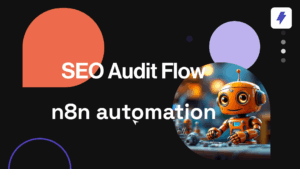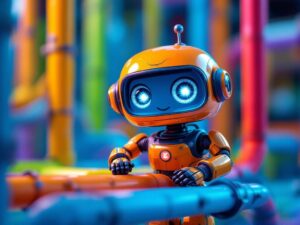In recent years, Artificial Intelligence (AI) has made significant strides, transforming various industries and revolutionizing the way we work. As AI continues to advance, there has been speculation about whether programmers will become obsolete in the face of intelligent machines. Will AI algorithms and automated systems replace the need for human programmers? In this blog, we will delve into this thought-provoking topic and explore the potential future of programming in the era of AI.
Table of Contents
ToggleThe Role of AI in Programming
AI has undeniably brought significant advancements to programming practices. Machine Learning (ML) algorithms can analyze vast amounts of code, identify patterns, and assist in automating repetitive tasks. With AI-powered tools, programmers can generate code snippets, refactor existing code, and detect bugs more efficiently. These advancements have streamlined software development processes and enhanced productivity. Generative AI code generators like ChatGPT, Google Bard & Microsoft Bing are taking center stage and disrupting various jobs including programming.
However, despite the impressive capabilities of AI, completely replacing programmers remains unlikely. Programming is not solely about writing lines of code; it involves problem-solving, logic, and creativity. These higher-order skills require human intelligence and intuition. While AI can automate certain aspects of programming, it struggles with complex decision-making, understanding context, and addressing abstract problems. Human programmers possess the ability to adapt, innovate, and think critically, which are crucial elements in the development of software solutions.
The Role of Programmers in the AI Era
As AI becomes more sophisticated, the role of programmers is likely to evolve rather than disappear. Programmers will play a pivotal role in leveraging AI technologies to their full potential. They will become AI orchestrators, designing and integrating intelligent systems into various domains. Programmers will need to understand AI algorithms, train and fine-tune models, and guide AI systems towards desired outcomes.
Moreover, the ethical and responsible use of AI will be the responsibility of human programmers. AI systems can amplify biases present in data, make incorrect predictions, or behave in unexpected ways. Programmers will be tasked with ensuring fairness, transparency, and accountability in AI algorithms. They will need to establish guidelines, monitor AI systems, and address any potential risks or unintended consequences.
Furthermore, programming is a collaborative and interdisciplinary field that requires effective communication and teamwork. Programmers work closely with domain experts, stakeholders, and end-users to understand requirements, develop tailored solutions, and iterate based on feedback. This human element is vital in programming and cannot be replaced by AI alone. The ability to empathize, understand user needs, and translate them into functional code is a distinct human trait.
The Future Workforce: Programmers and AI
While AI may not replace programmers entirely, it will undoubtedly reshape the workforce and the skills required for programming roles. Programmers will need to upskill and adapt to the changing landscape, incorporating AI knowledge into their repertoire. Familiarity with AI concepts, algorithms, and tools will become essential for programmers to stay competitive and remain valuable in the job market.
Furthermore, the collaboration between humans and AI will become increasingly prevalent. AI systems can provide suggestions, automate routine tasks, and enhance the efficiency of programmers. By leveraging AI, programmers can focus on higher-level tasks such as architectural design, algorithm development, and system integration. This collaboration will amplify productivity and foster innovation, leading to the development of more sophisticated software solutions.
Conclusion: Will AI Replace Programmers?
In conclusion, while AI is transforming programming practices, the complete replacement of programmers is unlikely. The unique skills and abilities possessed by human programmers, including critical thinking, creativity, and adaptability, are challenging for AI to replicate. AI will augment programmers’ capabilities, automating certain aspects of coding and enhancing efficiency. Programmers will play a crucial role in leveraging AI technologies, ensuring ethical and responsible use, and collaborating with intelligent systems.
As the field evolves, programmers will need to upskill, incorporating AI knowledge into their skill set. The future of programming lies in a symbiotic relationship between humans and AI, where the collaboration between intelligent machines and skilled programmers leads to innovative solutions and drives technological advancements.
If you’re looking to write or fix your code using the power of AI, look no further than Straico. It offers multiple AI models


